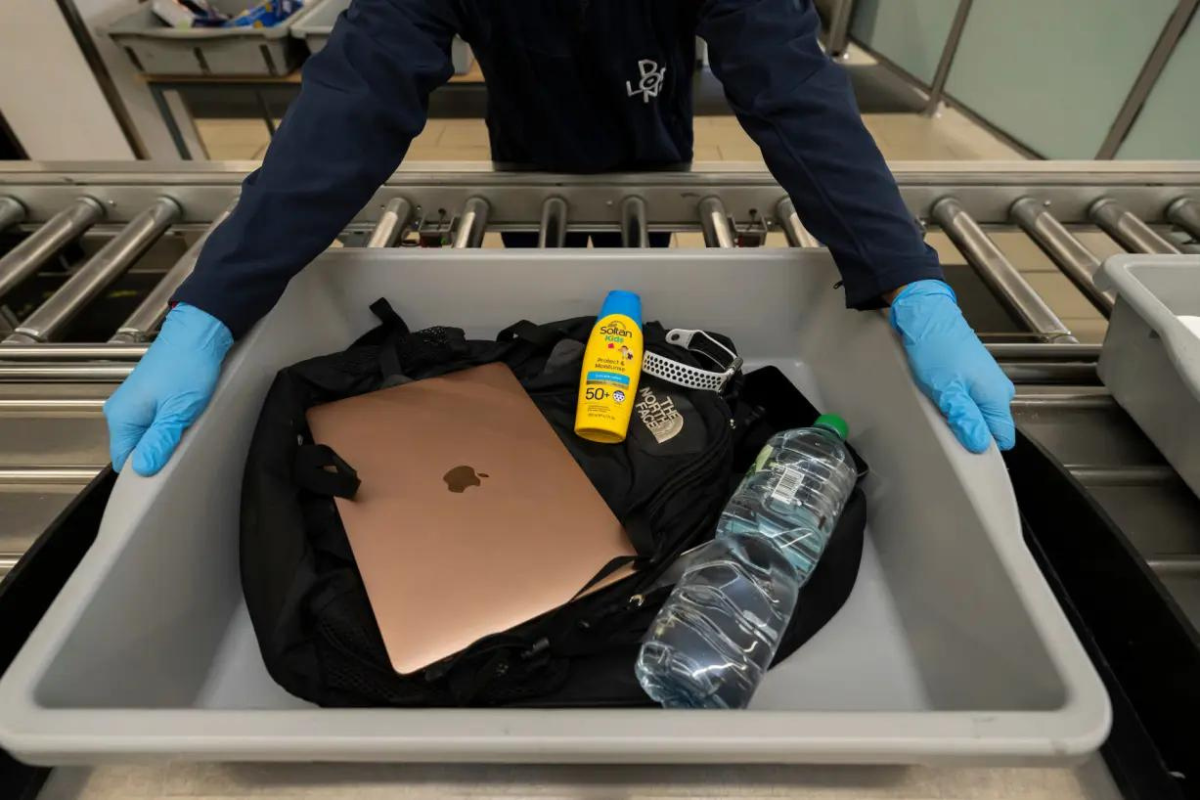
The British government has unexpectedly performed a spectacular U-turn and will reimpose liquid restrictions at airports that have installed next-generation security scanners designed to allow passengers to ease through security checkpoints with ease.
The scanners are currently being installed at airports across the United Kingdom on the orders of the government, which wanted to lift the loathed 100ml liquid rule by this summer.
Unfortunately, the biggest airports in the UK, including the likes of London Heathrow and London Gatwick, are way behind schedule, but others have managed to beat the government’s deadline and have been allowing passengers to painlessly transit through checkpoints without having to worry about liquids of electronics in the bags.
Last April, London City Airport became the first major airport in the UK to have the next-generation scanners fully installed, and since then, the East End airport has become a favourite of frequent flyers due to the ease of getting through security before boarding a flight.
On Friday night, however, the airport announced that the Department of Transport (DfT) had issued an urgent directive, ordering airports with the latest generation of Computed Tomography (CT) scanners to revert back to the old rules for liquids.
As a result, from one minute past midnight on Sunday, 9th June, passengers will no longer be allowed to take any liquids in quantities of more than 100ml each.
“This temporary move is to enable further improvements to be made to the new checkpoint systems and will only affect a small number of passengers,” the DfT explained in a cryptic statement on Friday night.
“For most passengers, security measures will remain unchanged,” the statement continued.
That is true given that most airports are yet to fully install the new security scanners, meaning that passengers must already comply with the 100ml rule at these airports.
The DfT did not explain why the directive had been issued so urgently or provide a timeline for when the liquid restriction will be lifted at airports with CT scanners.
Along with London City, Newcastle, Leeds/Bradford, Aberdeen, Southend, and Teesside airports are all fully equipped with the latest security scanners.
A number of other airports, such as London Heathrow Gatwick and Manchester, have started the rollout of the scanners, but as the deployment is not complete, passengers are still advised to comply with the 100ml rule as it can’t be guaranteed that they will pass through a security lane equipped with the new tech.
In a statement, London City Airport said passengers would still be able to leave their liquids and electronics in their bags.
CT scanners work by creating a 3-D image of the luggage contents, which is then analysed by sophisticated algorithms to detect weapons, explosives and other prohibited items, including liquid explosives.
The scanning process is actually slower than that of existing x-ray machines, and it’s understood that the DfT is concerned about the number of bags that are still being rejected for further inspection.
The current liquids restrictions were quickly introduced in 2006 after a transatlantic liquid bomb plot was foiled by British and American intelligence services, but it’s hoped that the CT scanners will allow passengers to take up to 2 litres of liquids in their hand luggage.
One of the reasons that Heathrow Airport is behind in its rollout of the scanners is that they are so heavy that the airport has been forced to reinforce the floors where they will be positioned.
Related
Mateusz Maszczynski honed his skills as an international flight attendant at the most prominent airline in the Middle East and has been flying ever since... most recently for a well known European airline. Matt is passionate about the aviation industry and has become an expert in passenger experience and human-centric stories. Always keeping an ear close to the ground, Matt's industry insights, analysis and news coverage is frequently relied upon by some of the biggest names in journalism.








Went through the new scanners last week… which was great. Except that they then wanted to inspect the water bottle that contained more than 100ml. Which basically shows that the scanners are not working properly. And that may be why they’re reimposing the prior rules because too many items with more than 100ml are being identified for secondary screening?
Was it a metal water bottle?